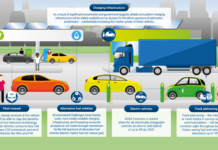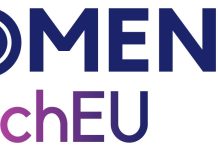The head of this working group is Vlatko Danilov MSc
 President of IRIPE Inter-Regional Initiative for Professionalization of Evaluation, and conference Former Coordinator of NESE, head of MEN. Activist and expert in development evaluation with experience in building evaluation systems. Hold a master degree in financial management with specialization in public finance, program and performance budgeting, costing and pricing of public services. Experienced in functional analysis of public institutions, ministries, municipalities, performance improvement, and introduction of M&E system in public organizations. I am interested in project for capacity building, training, performance improvement and evaluation of projects, programs, strategies of public institutions in Southeast Europe countries. Experienced in education, social policy, judicial, economy.
President of IRIPE Inter-Regional Initiative for Professionalization of Evaluation, and conference Former Coordinator of NESE, head of MEN. Activist and expert in development evaluation with experience in building evaluation systems. Hold a master degree in financial management with specialization in public finance, program and performance budgeting, costing and pricing of public services. Experienced in functional analysis of public institutions, ministries, municipalities, performance improvement, and introduction of M&E system in public organizations. I am interested in project for capacity building, training, performance improvement and evaluation of projects, programs, strategies of public institutions in Southeast Europe countries. Experienced in education, social policy, judicial, economy.
The Evaluation in Europe is becoming an essential part of decision-making processes at national and Commission levels. Demand for quality evaluation services is rising. On European level the focus is to advance evaluation knowledge and to encourage adoption of good practices by fostering evaluation excellence, independence and partnerships.
“Professionalization of Evaluation and Public Policies” working group focuses on advancing the field of policy evaluation and improving the quality, effectiveness, and professionalism of evaluation practices within public policy development and implementation. Here are the key tasks and responsibilities that this working group will undertake:
-
Standardization and Best Practices: Develop and promote professional standards and best practices for policy evaluation, including methodologies, data collection, analysis, and reporting.
-
Capacity Building: Provide training, workshops, and resources to enhance the skills and competencies of policymakers, evaluators, and other stakeholders involved in the evaluation process.
-
Ethical Guidelines: Establish ethical guidelines for policy evaluation to ensure transparency, impartiality, and the responsible handling of data and findings.
-
Quality Assurance: Develop mechanisms for quality assurance and peer review in policy evaluation, encouraging rigor and accuracy in the evaluation process.
-
Methodological Advancements: Encourage research and development of innovative evaluation methods and tools that can improve the precision and reliability of policy evaluations.
-
Data Collection and Management: Promote efficient and ethical data collection and management practices to support evidence-based policymaking.
-
Outcome Measurement: Develop standardized frameworks and metrics for measuring policy outcomes and impact, allowing for consistent evaluation across different policies and programs.
-
Evaluation Reporting: Advocate for clear, concise, and accessible reporting of evaluation findings, making them readily available to policymakers and the public.
-
Stakeholder Engagement: Promote stakeholder engagement and collaboration in the evaluation process, ensuring that diverse perspectives are considered and that evaluation results are relevant and actionable.
-
Dissemination of Findings: Facilitate the dissemination of evaluation findings to policymakers, government agencies, and the public to inform decision-making and accountability.
-
Evaluation Culture: Encourage the development of a culture of evaluation within government agencies, promoting a continuous cycle of assessment, learning, and improvement.
-
Use of Technology: Explore the use of technology, data analytics, and digital platforms to streamline data collection, analysis, and reporting in policy evaluation.
-
Evidence-Based Policymaking: Advocate for the integration of evaluation findings into the policymaking process, emphasizing the importance of data-driven decision-making.
-
Policy Impact Assessment: Assess the impact of policies and programs on intended outcomes, as well as unintended consequences, and use these assessments to inform future policy development.
-
Policy Learning Networks: Facilitate networks and knowledge-sharing platforms where policymakers and evaluators can exchange insights and lessons learned.
-
Policy Evaluation Funding: Advocate for dedicated funding and resources for policy evaluation efforts, ensuring that evaluations are adequately resourced and independent.
-
Evaluation of Key Sectors: Prioritize evaluation efforts in key policy sectors, such as education, healthcare, environment, and social welfare, where the impact of policies is significant.
-
Advocacy for Evaluation: Engage in advocacy efforts to highlight the value and importance of evaluation in promoting effective, accountable, and evidence-based public policies.
-
Policy Evaluation Research: Support research initiatives focused on the effectiveness of policy evaluation methods and their impact on policymaking.
-
Policy Evaluation Networks: Collaborate with international organizations and evaluation networks to share knowledge and foster global standards in policy evaluation.
5th Biennial Conference of the Western Balkans Evaluators’ Network (WBEN)
WBEN
Date: 29-30 September 2023,
Location: Ljubljana, Slovenia – Faculty of Criminal Justice and Security (UM), Kotnikova street 8, Ljubljana (room 7, 1st floor).
“Impact Evaluation of public policies – principles, methods and practices”.
The Conference will prioritize the following topics:
- Current practice and the system of policy impact evaluations in the country, sector, region; perspectives based on concrete experiences and completed evaluation studies.
- Evaluation challenges related to theory, methodology, system, standards or ethics.
- The evaluation system and broader evaluation challenges related to the EU, international donors, the UN and other global actors.
- Key issues of the organization and the work of evaluation communities in the WB region, including the establishment of the evaluation profession.
- Cooperation of evaluators in the region and experience from the work of the regional network.
The organizer will endeavour to publish a book of abstracts.
Registration fee for participants:
Early birds (until 1 September 2023) EUR 100
From 1 September 2023 onward EUR 200
If you wish to contribute additionally to the activities of the regional community of evaluators, you are kindly invited to voluntarily contribute the full amount of EUR 200. You will be granted additional visibility and secure an invitation to the VIP lunch.
Additional for 2024:
























